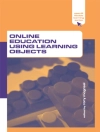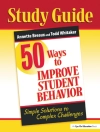Across the world, performing arts programmes are increasing in number, scope and professionalism. They attract increasing academic and media attention. Theoretical and applied research, organizational evaluation reports, documentary films and journalism are detailing prison arts and creating recognition that this body of work is becoming a valued part of the correctional enterprise. There is a growing body of evidence that suggests music, theatre, poetry and dance can contribute to prisoner wellbeing, management, rehabilitation and reintegration. Performing Arts in Prisons: Creative Perspectives explores prison arts in Australia, the United States, the United Kingdom and Chile, and creates a new framework for understanding its practices.
Tabela de Conteúdo
Notes on Contributors
Preface
Introduction: Performing arts in prisons – creative perspectives
Micheal Balfour, Brydie-Leigh Bartleet, Linda Davey, John Rynne and Huib Schippers
Chapter 1: A correctional perspective on the creative arts in prisons
Andrew Day
Chapter 2: Geese Theatre Company – 30 years on
Louise Heywood, Andy Watson MBE and Michael Balfour
Chapter 3: One Mob Different Country: First Peoples of Australia dance in Darwin Prison
John Rynne, Dennis Lew Fatt and Brett Schroder
Chapter 4: ‘This place is full of drama queens’: Reflecting on the value of drama in a women’s prison
Sarah Woodland
Chapter 5: Through the looking glass: A voice from the inside
Anya (pseudonym)
Chapter 6: Breaking the fifth wall: How performance might assist desistance from crime
Linda Davey
Chapter 7: Drumming interventions in Australian prisons: Insights from the Rhythm2Recovery model
Simon Faulkner and Brydie-Leigh Bartleet
Chapter 8: Arts in Corrections New Zealand
Jacqui Moyes
Chapter 9: The play’s the thing: Performance in Prison Shakespeare
Rob Pensalfini
Chapter 10: ‘Heart and heartbeat’: Working beyond prison theatre, performing protagonismo social in the real world
Penelope Glass
Chapter 11: ‘Strategies for success’: Trusting the power of the arts
Maud Clarke
Chapter 12: Performing arts activities with hopes to build positive self-identity, heal harms and broaden the US public’s perceptions of people inside prisons
Mary L. Cohen
Chapter 13: Unlocked: Prison poetry workshops as a key to engaging inmates
Johanna Featherstone and Huib Schippers
Chapter 14: ‘Music is the colour of my skin’: The story of the Murru Band
Dudley Billing and Dave Palmer
Concluding Reflections
Micheal Balfour, Brydie-Leigh Bartleet, Linda Davey, John Rynne and Huib Schippers
Index
Sobre o autor
Brydie-Leigh Bartleet is a professor and Australian Research Council future fellow at the Creative Arts Research Institute and Queensland Conservatorium, Griffith University. She is a dynamic research leader, award-winning educator, respected community collaborator and arts sector advocate. Over the past twenty years, her work has advanced our understanding of the cultural, social, economic and educational benefits of music and the arts in First Nations’ communities, prisons, war-affected cities, educational and industry contexts. Her research is known for its innovation, interdisciplinarity and cross-sector partnerships and has connected music with areas as diverse as social inequality, regional development, criminology and corrections, health equity and human rights. She has worked on seven nationally competitive grants, eight research consultancies with leading arts and social sector organizations and five prestigious fellowships totalling well over $3 million. She is currently the president of the Social Impact of Music Making international research platform, a director of QMF (formerly Queensland Music Festival), associate editor of the International Journal of Community Music and a course director for Global Leaders Programme, MBA in arts innovation. In 2014 she was awarded the Australian University Teacher of the Year, and in 2022 she was a Fulbright Scholar at New York University Steinhardt.
Contact: Creative Arts Research Institute, Griffith University, South Bank Campus, PO Box 3428, South Bank, QLD, 4101, Australia.












